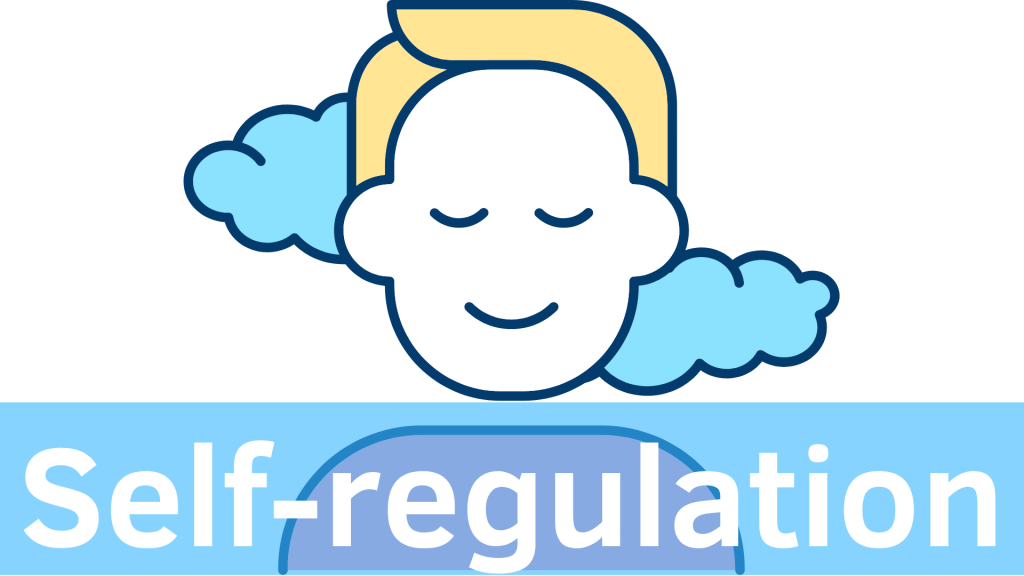Introduction
As parents, we understand the importance of helping our children develop skills that will contribute to their emotional well-being and future success. One such crucial skill is self-regulation, which encompasses the ability to control behavior, emotions, and thoughts in pursuit of long-term goals. In this article, we will explore the concept of self-regulation, its significance, common challenges, and effective strategies for developing and practicing self-regulation. By understanding and implementing these techniques, parents can support their children in cultivating self-regulation and fostering a positive and resilient mindset.
Table of Contents
- Understanding Self-Regulation
- Definition and Importance
- The Development of Self-Regulation
- Emotional Intelligence and Self-Regulation
- The Significance of Self-Regulation
- Benefits of Self-Regulation
- Common Self-Regulation Problems
- Effective Strategies for Self-Regulation
- Mindfulness
- Cognitive Reappraisal
- Acceptance and Problem-Solving
- Avoidance, Distraction, Suppression, and Worrying
- Practicing Self-Regulation
- Self-Regulation Tips for Adults
- Helping Children with Self-Regulation
- Implementing Routines and Consistency
- Seeking Professional Help
- When to Consult a Mental Health Professional
- The Role of Therapy in Developing Self-Regulation
Understanding Self-Regulation
Definition and Importance
Self-regulation refers to the ability to control one’s behavior, emotions, and thoughts in pursuit of long-term goals. It involves managing disruptive emotions and impulses, thinking before acting, and rebounding from disappointments. Self-regulation is a key component of emotional intelligence and plays a significant role in personal and social development.
The Development of Self-Regulation
The foundation of self-regulation is established during childhood. Children gradually learn how to tolerate uncomfortable feelings, control impulses, and regulate their behaviors. This process is influenced by their environment, experiences, and the guidance of parents and caregivers. As children mature, they develop emotional, social, and cognitive skills that enable them to face threats with patience and thoughtfulness.
Emotional Intelligence and Self-Regulation
Self-regulation is closely intertwined with emotional intelligence, which encompasses the ability to recognize, understand, and manage one’s emotions and the emotions of others. Developing emotional intelligence enhances self-awareness, empathy, and social skills, contributing to effective self-regulation.
The Significance of Self-Regulation
Benefits of Self-Regulation
Self-regulation plays a crucial role in relationships, well-being, and overall success in life. Individuals who can manage their emotions and control their behavior are better equipped to handle stress, navigate conflicts, and achieve their goals. Self-regulation promotes resilience, emotional well-being, and positive mental health outcomes.
Common Self-Regulation Problems
Problems with self-regulation can emerge when individuals have not developed the necessary skills or lack strategies for managing difficult emotions. Early experiences and a lack of secure attachments can also impact self-regulation abilities. Difficulties in self-regulation may manifest as impulsive behaviors, emotional outbursts, and trouble handling stress. Unaddressed self-regulation challenges can lead to mental health disorders and risky behaviors.
Effective Strategies for Self-Regulation
Mindfulness
Mindfulness, the practice of being fully present and non-judgmentally aware of one’s thoughts, feelings, and sensations, is a powerful technique for self-regulation. Engaging in mindfulness exercises, such as focused breathing and gratitude, allows individuals to create space between their reactions and their actions. It fosters focus, calmness, and relaxation while improving attention and regulating negative emotions.
Cognitive Reappraisal
Cognitive reappraisal involves changing thought patterns to reinterpret situations and modify emotional responses. By reframing thoughts, individuals can alter their perspective and replace negative emotions with more positive ones. Cognitive reappraisal has been found to enhance daily positive emotions and reduce negative emotions, contributing to effective self-regulation.
Acceptance and Problem-Solving
Acceptance involves acknowledging and embracing difficult emotions without judgment or avoidance. It allows individuals to navigate challenging situations and move forward constructively. Problem-solving entails identifying and implementing solutions to address the underlying causes of distress. Combining acceptance and problem-solving strategies can promote effective self-regulation.
Avoidance, Distraction, Suppression, and Worrying
While acceptance and problem-solving are beneficial strategies, some individuals may resort to less helpful techniques such as avoidance, distraction, suppression, or excessive worrying. These strategies provide temporary relief but do not contribute to long-term self-regulation. Understanding their limitations and actively replacing them with healthier techniques is essential.
Practicing Self-Regulation
Self-Regulation Tips for Adults
Practicing self-regulation begins with recognizing that we have a choice in how we react to situations. Identifying and understanding our emotions is crucial. By monitoring our bodies for physical cues, we can gain insight into our emotional state. Restoring balance involves focusing on deeply held values and seeing beyond momentary discomfort to the bigger picture. Recognizing available options allows us to make deliberate and conscious choices.
Helping Children with Self-Regulation
Parents can play a significant role in supporting their children’s development of self-regulation. Establishing routines and consistency provides children with predictability and comfort, facilitating self-regulation. Ignoring requests for immediate attention when children act impulsively helps them understand the importance of waiting and self-soothing. By creating an environment that promotes self-regulation, parents can help their children develop this vital skill.
Implementing Routines and Consistency
Implementing routines and consistency in daily life can benefit both adults and children in developing self-regulation. Regular meal times, consistent bedtime routines, and structured schedules create a sense of predictability and stability. Routines help individuals know what to expect and enable them to regulate their behaviors and emotions more effectively.
Seeking Professional Help
When to Consult a Mental Health Professional
While self-regulation is a skill that can be developed and practiced, some individuals may face challenges that require professional assistance. If self-regulation difficulties persist and significantly impact daily functioning, it may be beneficial to consult a mental health professional. A trained therapist can provide guidance, strategies, and support tailored to individual needs.
The Role of Therapy in Developing Self-Regulation
Therapy can be an effective avenue for practicing and refining self-regulation skills. Therapists can help individuals learn specific strategies for managing emotions, developing self-awareness, and implementing effective self-regulation techniques. Through therapy, individuals can gain a deeper understanding of their emotions and behaviors while acquiring the tools to navigate challenging situations with resilience and positivity.
Conclusion
Self-regulation is a valuable skill that contributes to personal growth, emotional well-being, and overall success in life. By understanding the concept of self-regulation and implementing effective strategies, parents can support their children in developing this vital skill. Practicing techniques such as mindfulness, cognitive reappraisal, acceptance, problem-solving, and consistency can enhance self-regulation abilities in both adults and children. When faced with persistent challenges, seeking the guidance of a mental health professional can provide valuable support and facilitate further development of self-regulation skills. By prioritizing self-regulation, parents empower their children to navigate life’s challenges with resilience, emotional intelligence, and a positive mindset.




